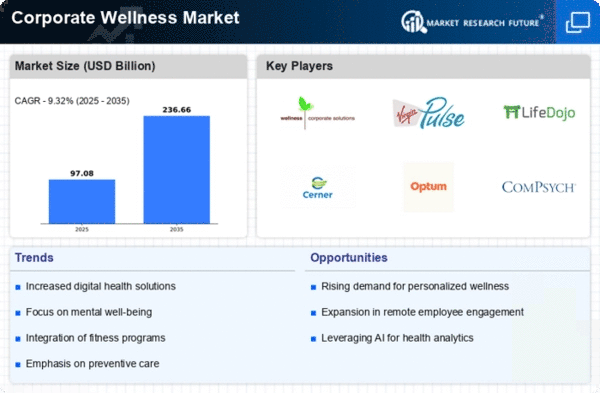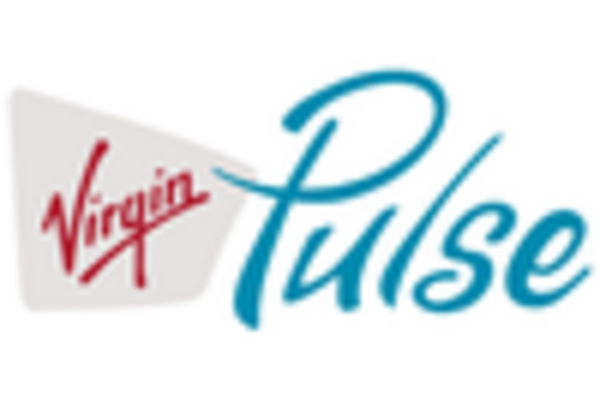Market Trends
Key Emerging Trends in the Corporate Wellness Market
INCREASING INVESTMENT IN MENTAL HEALTH AND STRESS MANAGEMENT PROGRAMS
The rising professional struggle among the employees to perform better than their colleagues, deliver on or before deadlines, minimize budgets and enhance sales are a few factors that cause stress among the employees. These factors cause mental health issues and stress among the employees that affect their health and overall productivity. According to the American Institute of Stress, the major cause for stress includes lack of job security, juggling work, people issues, and workload. In addition, about 80% of the American employees feel stressed on the job, among which 62% of the employees end their day with neck-related issues, and 34% of the employees develop insomnia characteristics due to a high level of stress at the workplace.
However, the organizations are investing in R&D activities and employee feedbacks to know the mental status of the employees. The companies are investing in stress management training, organizational and individual stress management programs, providing stress relief opportunities, and promoting positive work-life balance. The companies are implementing on-site meditation classes to reduce anxiety, stress, and depression. The introduction of such a program aims to improve productivity, resiliency, and office morale. Moreover, the emergence of wellness challenges such as self-care challenge, meditation challenge, breathing challenge, and walking challenges are a few measures taken by organizations to deal with stressful situation.
RISING ADOPTION OF WEARABLE TECHNOLOGIES AND FITNESS ACTIVITIES
The potential integration of artificial intelligence with digital printing technology can pave the way for several growth opportunities for the local as well as international players of the market. The different areas where artificial intelligence can be applied within photographic printing industry are predictive maintenance, protection against security threats, and paper to digital automation. Companies such as Xerox are exploring benefits of artificial intelligence for predictive maintenance of their multi-function printers. The early innovators in the photo printing industry are expected to witness growth in the years to come.
INCREASING CHRONIC DISEASES AMONG CORPORATE EMPLOYEES
Chronic diseases such as heart disease and diabetes are some of the raging illnesses across the globe.The working population is the most affected segment of society. According to the Centers for Disease Control & Prevention, around 4.6% of the adults of the total population are diagnosed with coronary heart disease. Increasing stress levels, workloads, unhealthy diet, less or no activity, and long sitting hours affect the functioning of vitals. According to a survey conducted by the Associated Chambers of Commerce and Industry of India (ASSOCHAM), nearly 72% of corporate employees are likely to develop cardiovascular diseases. The night shift workers have a 52% more risk of developing heart-related diseases.
Additionally, a study suggests that working nearly or more than 46 hours a week might trigger long-term heart problems. Moreover, the entrepreneurs and other small companies compel their employees to work for more than 10 hours a day to reach their business goals. This will significantly exert the physical and mental capability of the employees that will further cause cardiac-related problems. The use of corporate wellness solutions helps the companies keep track of their employees' health and wellbeing and provide different measures to reduce problems occurring due to chronic diseases.


















Leave a Comment